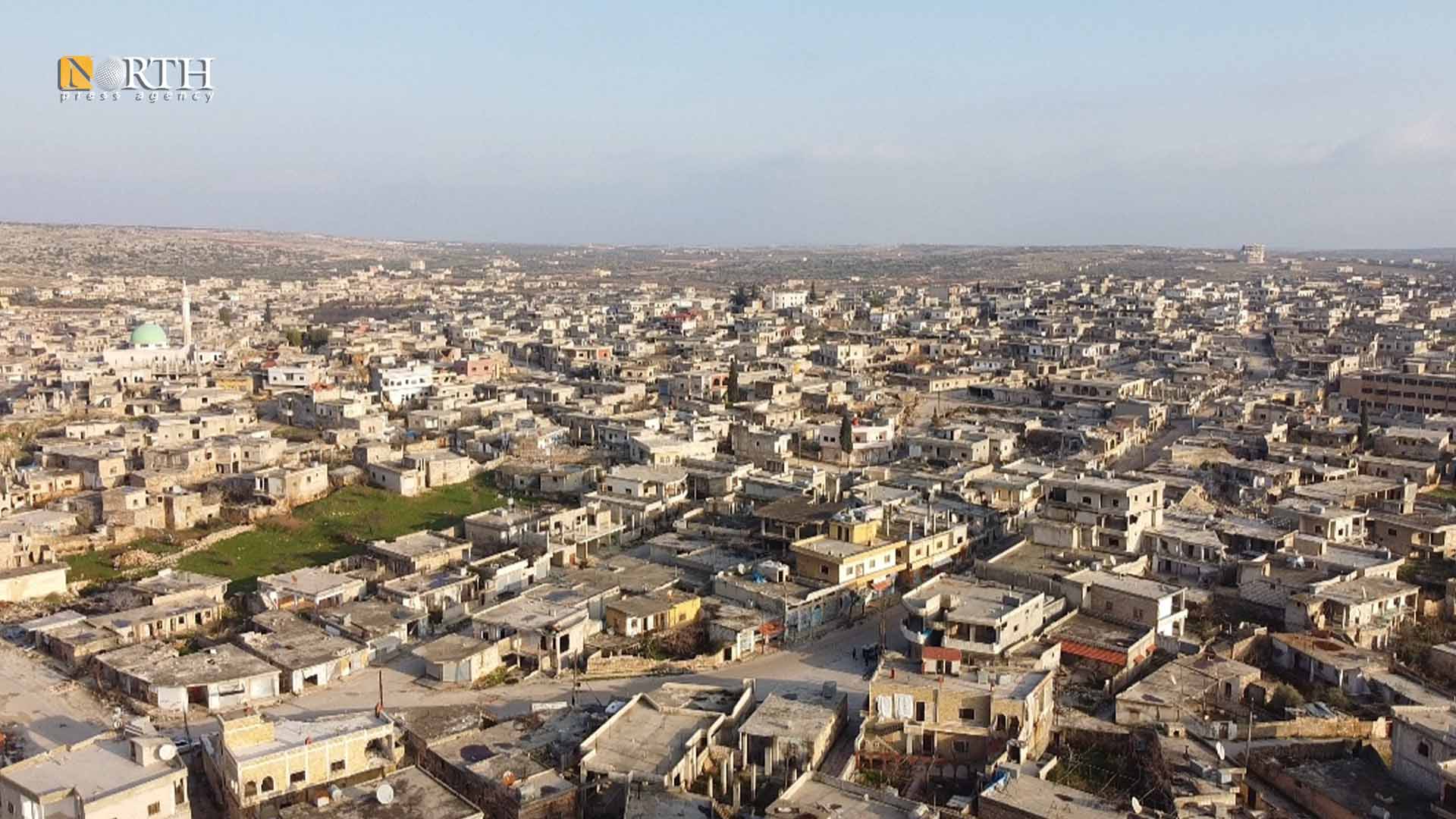IDLIB, Syria (North Press) – Residents of Zawiya Mountain, in the southern part of northwest Syria’s Idlib, say that the dozens of posts that Turkey established there have not halted the Syrian government’s shelling of their houses, nor have they contributed to stability in the area.
This week, Turkey sent five military convoys into Syria to Idlib and its countryside. Press reports state that there are about 13,000 Turkish soldiers in addition to about 9,000 Turkish military vehicles in northwest Syria.
Meanwhile, few residents dare to return to their villages and towns in Zawiya Mountain due to their ongoing fears of a new military operation and their skepticism of Turkish promises to prevent any Syrian government advance in the area.
Residents fear a military operation similar to that which took place in February of 2020, when Russian- and Iranian-backed Syrian government forces seized several key cities and towns in the de-escalation zone in both the Idlib and Aleppo governorates.
The deteriorating living conditions in camps in the north of Idlib governorate forced people to return to their homes despite the ongoing mutual shelling between government forces and opposition groups, Najeh al-Asfar, a resident of Kansafra in Zawiya Mountain, told North Press.
“Earlier, when Turkish forces deployed in the area, we were hopeful; however, with time we noticed that they could not halt the government shelling against their posts in Zawiya Mountain,” he added.
The Turkish standpoint in the upcoming battle will be different, since Turkey has brought thousands of Turkish soldiers into Idlib and its villages, Idlib resident Hassan al-Haji (a pseudonym) said.
Al-Haji relies on the fact that because the area includes millions of civilians and IDPs, it “can no longer be subjected to geographic shrinkage.”
Since early 2021, Idlib and surrounding areas have been subjected to mutual shelling between Syrian government forces and Russia and the Syrian opposition groups and Turkey.
Residents of the area are afraid that the unrevealed terms of the Russian-Turkish agreements include terms to hand new areas over to the Syrian government.
Meanwhile, Jihad Daham, a resident of al-Bara town, believes that Turkish mobilization in the area “means to hand the area to the Syrian regime later on, similar to what happened earlier in the northern countryside of Hama.”
Turkish bases and posts will not be subjected to danger, and even if the government forces take control over the entire area, “they were besieged earlier and they easily withdrew,” according to Daham.
Turkish forces continue to promise that they will prevent the government forces from advancing in the area. “However, those promises are the same that they made to the residents of the northern countryside of Hama and eastern countryside of Idlib before handing over the areas,” Daham pointed out.
Hammadin al-Aziza, who recently fled from Zawiya Mountain, said that six months ago the Turkish post near the town of Baluon, south of Idlib, offered many promises to protect and defend the town.”
“But those promises worsened the matters,” according to the IDP, who returned to displacement camps north of Idlib.

